detail profile flora dias
Peran Yang Di Mainkan Flora Dias
 Close to turning forty and away...
Close to turning forty and away...Not Even God Is As Fair As Your Jeans 2025
Close to turning forty and away from his job as a librarian due to depression, Marcos needs to take care of Baby, his sister's pet dog. Isolated in an apartment in the city center, Marcos relies on the support of analyst Dr. Juliana R., who sees him in therapy sessions. Together, they look for ways to deal with the grief over the death of his ex-boyfriend, Pedro, and the arrival of a new love, Gabriel. Baby, a special hairless dog of Aztec origin, will redefine his relationship with the world of the dead and the living as well.
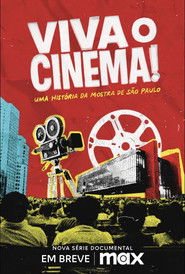 The series tells the story of...
The series tells the story of...Viva o Cinema! Uma História da Mostra de São Paulo 2024
The series tells the story of the São Paulo International Film Festival, one of the most traditional cultural events in Latin America. For 48 years, the festival has showcased hundreds of films from all over the world, bringing vibrancy to the city. Filmmaker Marina Person provides an irreverent perspective, highlighting the exciting and unusual stories that have marked the festival’s journey of resistance. The series reveals the individuals who have embraced the challenge of organizing this significant cultural event in Brazil every year, despite often challenging conditions. We also delves into how the Mostra has grown to become one of the main festivals globally, shedding light on the changes in cinema, Brazil, and the world over the years.
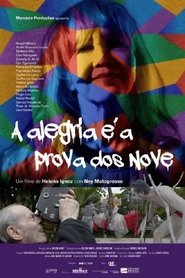 A film about love also a...
A film about love also a...Joy Is the Acid Test 2023
A film about love, also a memoir, about the trip made in the 1970s to Morocco by Jarda Ícone, an artist, sexologist, and octogenarian rocker, as she defines herself, and Lírio Terron, a human rights activist. In fact, a journey that is not over in their lives. Jarda Icon teaches classes on how women can obtain their own orgasm. With her group of disciples and friends Ana Brasil, Sheyla Fernanda, Caroline Sylvie and Lakshmi she develops self-sustainable feminist and artistic projects. The film is political, but not at all politicized in the traditional sense. It is an ode to the underground and counterculture movements, it is a hymn to freedom, and its title is also a tribute to Oswald d Andrade, one of the main names in Brazilian modernism.
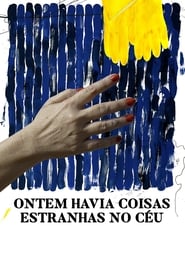 The daily life of a family...
The daily life of a family...Yesterday There Were Strange Things in the Sky 2020
The daily life of a family in which countless factors are disturbing: the father is unemployed, the members need to move house, the mother is abducted, and life continues as if nothing had happened.
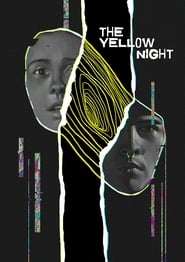 A group of friends travels to...
A group of friends travels to...The Yellow Night 2019
A group of friends travels to a beach house on an island on the brazilian seaside to celebrate the end of high school, a place virtually no one else inhabits and which is almost always dark. However, their drollery and parties are cut short by the feeling that the place shelters an unfathomable horror.
 Joo a middleclass filmmaker goes through...
Joo a middleclass filmmaker goes through...Your Bones and Your Eyes 2019
João, a middle-class filmmaker, goes through a series of encounters with people like his long-time friend Irene; his boyfriend Álvaro; Matias, a young man he meets in the subway and has a sexual experience with, among others, some acquainted, others unknown. These encounters affect him and slowly begin to reveal a play of time frames which blends together life and creative process, present and memory.
 Two girls have a chance encounter...
Two girls have a chance encounter...Ana e Vitória 2018
Two girls have a chance encounter and instantly befriend. While trying to find themselves, they decide to pursue music together.
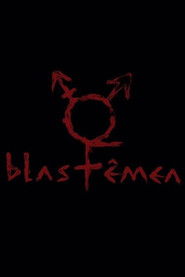 An audiovisual experiment showing female power...
An audiovisual experiment showing female power...blasFêmea 2017
An audiovisual experiment showing female power in its various possibilities. It evolves through three narrative moments: the prologue, the central narrative, and the epilogue. The first materializes and at the same time rebels against the cultural construction of the "cult of the Phallus". In the second moment, we can see the formation of a network of protection and mutual help among women, exalting their bodies and their powers. And the last moment is practically a making off, with real scenes of all the women in the cast recording the video.
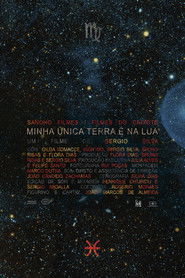 Sergio answers 36 questions to make Gabriel...
Sergio answers 36 questions to make Gabriel...My Only Earth Is in the Moon 2017
Sergio answers 36 questions to make Gabriel fall in love. Did you know Glauber was a Pisces?
 One day Eduardo arrives at his...
One day Eduardo arrives at his...Ballad of Return 2016
One day, Eduardo arrives at his house and discovers that Julia, his wife, tried to commit suicide. She left her husband and two children without saying goodbye. After some time, she comes back home. He tries everything to set her straight, but the impossibility of knowing her fully grieves him. The shadow of the suicide and the inevitable ghost of a new chance hover over their heads. Eduardo insists on understanding his wife, but an increasing jealousy and an unexpected discovery of her past torture him. He does not realize that, most of the time, the search for control easily becomes an obsession.
 In the countryside in Brazil a...
In the countryside in Brazil a...A Time to Kill, A Time to Die 2016
In the countryside in Brazil, a group of boys hangs out around a gas station with its manager, Élcio. The men drink beer, do lots of macho stuff, play soccer. In the midst of this, there is an exchange of looks that demonstrates repressed desires, the need to sublimate oneself to be in tune with the rest of the world.
 The year is 1984 Estela is going...
The year is 1984 Estela is going...Califórnia 2015
The year is 1984. Estela is going through the turbulent phase of adolescence. Sex, lovers, friendships; everything seems very complicated. Her uncle Carlos is her hero, and visiting him in California is her biggest dream. But everything collapses when he returns thin, weak and ill. Between crises and discoveries, Estela will face a reality that will forever change her way of seeing the world.
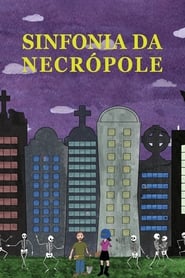 In the city of So Paulo...
In the city of So Paulo...Necropolis Symphony 2014
In the city of São Paulo, the routine of gravedigger apprentice Deodato changes when a new working girl arrives at the cemetery. Together, they must re-register the abandoned tombs, but strange events make the apprentice wonder about the consequences of messing with the dead.
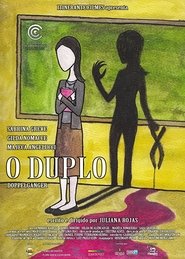 Silvia is a young teacher at...
Silvia is a young teacher at...Doppelgänger 2012
Silvia is a young teacher at an elementary school. One day, her class is interrupted when the students notice her double walking on the other side of the street. Silvia tries to ignore the apparition, but this strange event begins to permeate her daily life and transform her pesonality.
 Simple emotionally compelling documentary that delves...
Simple emotionally compelling documentary that delves...Songs 2011
Simple, emotionally compelling documentary that delves into the songs that hold meaning in people's lives. It is composed of 18 sessions where the director engages his subjects in conversation about the song they picked. The end product is deeply personal stories about music and its intimate connection to memory, love, loss, self-discovery, regret, death, and life.
 Two girls star in this musical...
Two girls star in this musical...The Scape of the Monkey Woman 2009
Two girls star in this musical drama amazing road! A van, a beach, a reed, very homesick, girls in flower perched at gas stations… and a little music.

 The name of Brazils biggest airport...
The name of Brazils biggest airport...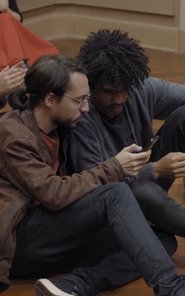 Theatre students Andr and Gabriel drum...
Theatre students Andr and Gabriel drum...